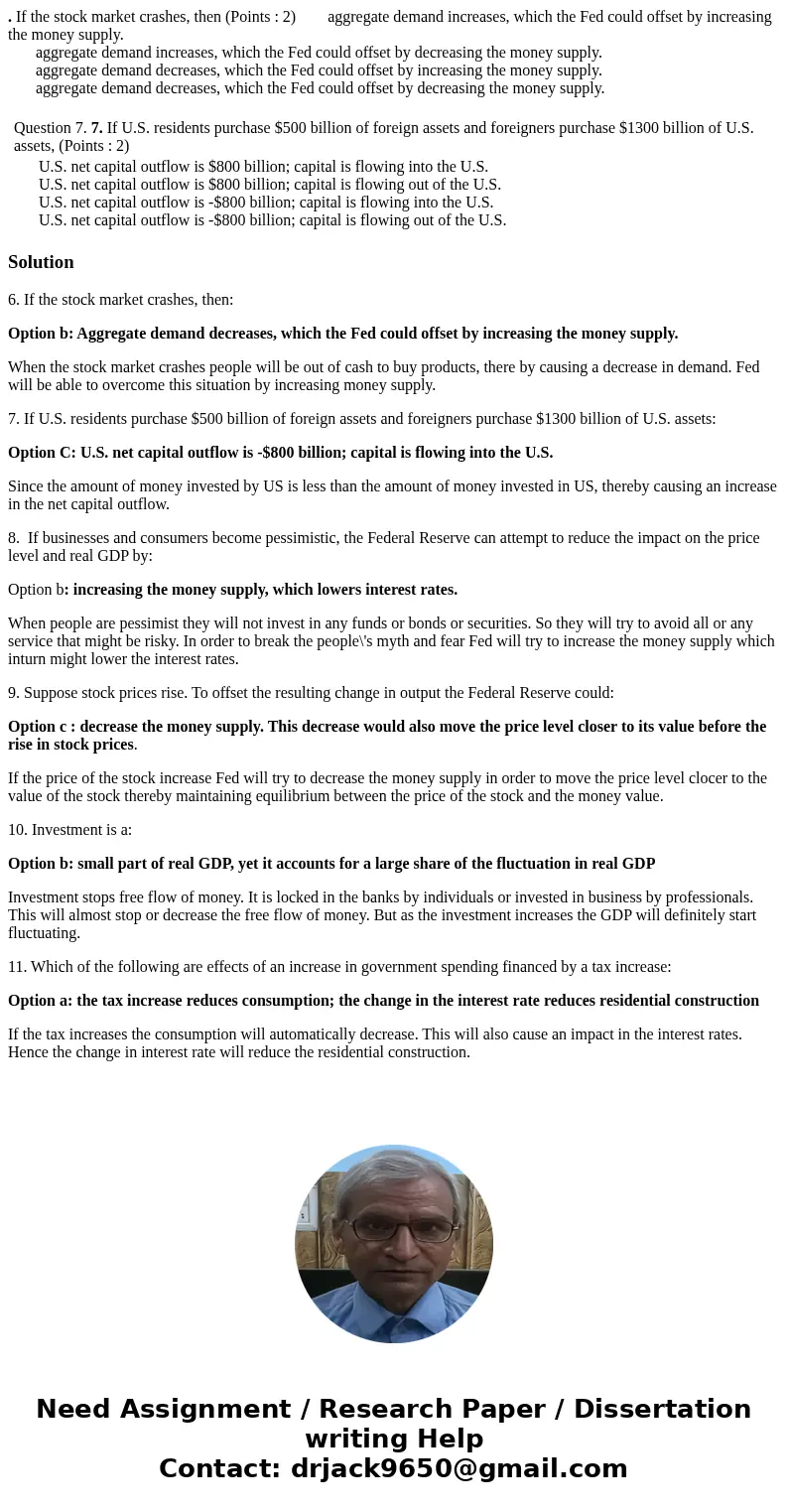If the stock market crashes then Points 2 aggregate demand
. If the stock market crashes, then (Points : 2) aggregate demand increases, which the Fed could offset by increasing the money supply.
aggregate demand increases, which the Fed could offset by decreasing the money supply.
aggregate demand decreases, which the Fed could offset by increasing the money supply.
aggregate demand decreases, which the Fed could offset by decreasing the money supply.
U.S. net capital outflow is $800 billion; capital is flowing out of the U.S. U.S. net capital outflow is -$800 billion; capital is flowing into the U.S. U.S. net capital outflow is -$800 billion; capital is flowing out of the U.S. |
Solution
6. If the stock market crashes, then:
Option b: Aggregate demand decreases, which the Fed could offset by increasing the money supply.
When the stock market crashes people will be out of cash to buy products, there by causing a decrease in demand. Fed will be able to overcome this situation by increasing money supply.
7. If U.S. residents purchase $500 billion of foreign assets and foreigners purchase $1300 billion of U.S. assets:
Option C: U.S. net capital outflow is -$800 billion; capital is flowing into the U.S.
Since the amount of money invested by US is less than the amount of money invested in US, thereby causing an increase in the net capital outflow.
8. If businesses and consumers become pessimistic, the Federal Reserve can attempt to reduce the impact on the price level and real GDP by:
Option b: increasing the money supply, which lowers interest rates.
When people are pessimist they will not invest in any funds or bonds or securities. So they will try to avoid all or any service that might be risky. In order to break the people\'s myth and fear Fed will try to increase the money supply which inturn might lower the interest rates.
9. Suppose stock prices rise. To offset the resulting change in output the Federal Reserve could:
Option c : decrease the money supply. This decrease would also move the price level closer to its value before the rise in stock prices.
If the price of the stock increase Fed will try to decrease the money supply in order to move the price level clocer to the value of the stock thereby maintaining equilibrium between the price of the stock and the money value.
10. Investment is a:
Option b: small part of real GDP, yet it accounts for a large share of the fluctuation in real GDP
Investment stops free flow of money. It is locked in the banks by individuals or invested in business by professionals. This will almost stop or decrease the free flow of money. But as the investment increases the GDP will definitely start fluctuating.
11. Which of the following are effects of an increase in government spending financed by a tax increase:
Option a: the tax increase reduces consumption; the change in the interest rate reduces residential construction
If the tax increases the consumption will automatically decrease. This will also cause an impact in the interest rates. Hence the change in interest rate will reduce the residential construction.

 Homework Sourse
Homework Sourse